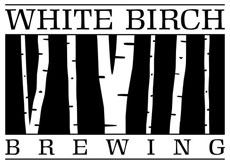C
New Hampshire House Bill 275 would create a two-year pilot program allowing beer produced by the state’s nano breweries and microbreweries to be sold at state-run liquor stores in Hampton and Hooksett. The bill comes two weeks after several of state’s craft brewers and distributors spoke out against a proposed bill (HB 168) that would raise the excise tax on beer sold to retailers by 10 cents per gallon.
Currently, the state-run liquor stores do not sell beer. While the proposed bill would change that, Sen. Martha Fuller Clark (D-Portsmouth), who sponsored the new bill along with four other state representatives, told the Portsmouth Patch that “it’s not for all beers.”
“It’s for our microbreweries and that’s a very special New Hampshire product, and it is a good way to get it known outside of the state,” Fuller Clark told the Patch, referring to the popularity of the stores from out-of-state consumers.
In New Hampshire, nano breweries are defined as companies that produce less than 2,000 barrels annually and self-distribute their products. Microbreweries are defined in the state as craft breweries which produce less than 15,000 barrels annually.
Brewbound.com spoke with two small-batch producers in N.H. who said they would be in favor of the bill.
“I think it would be a nice option to be able to sell beer at liquor outlets,” said Annette Lee, co-founder of North Hampton-based Throwback Brewery.
But Lee said her company, which produced roughly 300 barrels in 2012, is already struggling to meet demand and wouldn’t be able to service the new accounts.
Bill Herlicka, the founder of Hooksett-based White Birch Brewing told Brewbound.com that while he’s in favor of the bill he does think that convincing consumers to purchase beer at the state liquor stores could be a challenge.
“At the end of the day, is it going to have a major impact on the beer buying habits in New Hampshire?” he asked. “Probably not; but anything that moves the ball forward, let’s give it a shot.”
White Birch made less than 2,000 barrels in 2012, Herlicka said.
Not everyone is in favor of the bill. John Dumais, the president of the New Hampshire Grocers Association, told the New Hampshire Union Leader that he isn’t sure state liquor stores would be successful in selling small craft brands.
“The liquor commission has not had a good history promoting New Hampshire wine,” Dumais told the Union Leader. “How effective would they be for nanobreweries?”
Yesterday, Robert Blaisdell, a representative of the New Hampshire Wine and Spirits Brokers Association, questioned the constitutionality of the bill at a public hearing before the state’s House Commerce and Consumer Affairs Committee. He argued that allowing in-state beer manufacturers preferential treatment could violate the commerce clause in New Hampshire’s constitution, the Union Leader reported.
“States cannot treat an in-state interest better than out-of-state interests,” Blaisdell told the committee.
However, it turns out that the bill may end up having a negative fiscal impact on New Hampshire itself. In a note included with the bill, the New Hampshire Liquor Commission stated that, as written, the proposal to begin selling beer at state liquor stores may decrease New Hampshire’s general fund revenue by an “indeterminable amount” in 2014 and 2015, citing loss of shelf space for higher margin wine and spirit offerings.
Herlicka disagreed, saying that larger format, 22 oz. bottles of beer can often times provide similar profit margins for retailers.